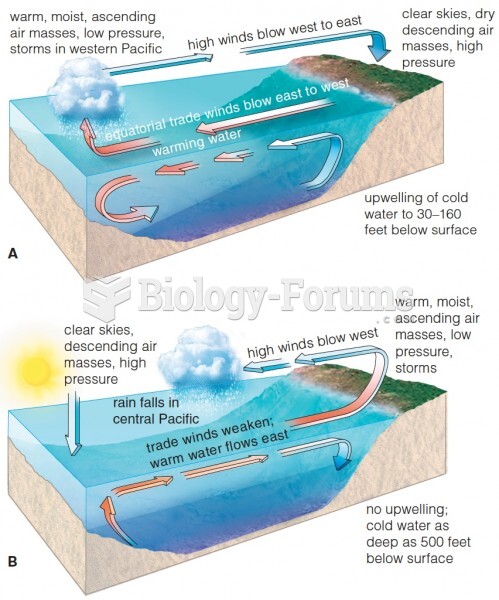|
|
|
Did you know?
The longest a person has survived after a heart transplant is 24 years.
Did you know?
If all the neurons in the human body were lined up, they would stretch more than 600 miles.
Did you know?
As many as 20% of Americans have been infected by the fungus known as Histoplasmosis. While most people are asymptomatic or only have slight symptoms, infection can progress to a rapid and potentially fatal superinfection.
Did you know?
Excessive alcohol use costs the country approximately $235 billion every year.
Did you know?
Each year in the United States, there are approximately six million pregnancies. This means that at any one time, about 4% of women in the United States are pregnant.





